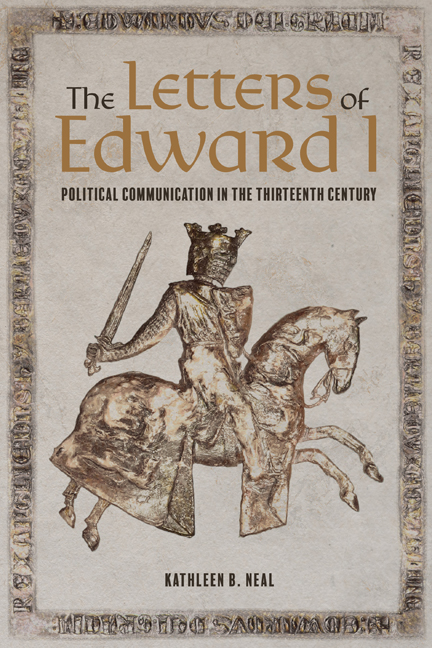Book contents
- Frontmatter
- Dedication
- Contents
- List of Illustrations
- Preface
- Abbreviations
- Introduction: Letters and the Language of Power
- 1 Royal Letters: The Authority of a Form
- 2 Rhetorical Refinement: Epistolary Editing and its Implications
- 3 Announcing the Message: Communities of Reception and Royal Ideology
- 4 ‘Dear Cousin’: Affect and Epistolarity beyond Borders
- 5 Keeping Friends Close: Strategies of Epistolary Alignment
- 6 Rhetoric Under Strain: Re-writing Royal Epistolarity
- Conclusion. Royal Epistolarity: The Voice of the King
- Appendix
- Bibliography
- Acknowledgements
- Index
6 - Rhetoric Under Strain: Re-writing Royal Epistolarity
Published online by Cambridge University Press: 09 February 2021
- Frontmatter
- Dedication
- Contents
- List of Illustrations
- Preface
- Abbreviations
- Introduction: Letters and the Language of Power
- 1 Royal Letters: The Authority of a Form
- 2 Rhetorical Refinement: Epistolary Editing and its Implications
- 3 Announcing the Message: Communities of Reception and Royal Ideology
- 4 ‘Dear Cousin’: Affect and Epistolarity beyond Borders
- 5 Keeping Friends Close: Strategies of Epistolary Alignment
- 6 Rhetoric Under Strain: Re-writing Royal Epistolarity
- Conclusion. Royal Epistolarity: The Voice of the King
- Appendix
- Bibliography
- Acknowledgements
- Index
Summary
In the 1270s and 1280s, royal epistolarity enjoyed substantial success in providing a discursive platform for promoting political harmony within the heartland of the king's domains and facilitating friendly relations on the diplomatic stage. In the 1290s, by contrast, circumstances placed political and diplomatic dynamics under growing pressure, affecting the balance of epistolary power and disrupting the efficacy of the established discourse. The king and his clerks experimented with new forms of epistolarity that could continue to assert royal authority in these changed circumstances. Their experiments led ultimately to the emergence of a new, more commanding and less conciliar epistolary mode. The carefully calibrated royal ars dictaminis, with its attention to the perspective and priorities of the recipient, gave way to a direct and commanding form of letter-writing concerned primarily with asserting the king's will. Expressed via the privy seal, such rhetoric was intimately associated with the king's own voice and personal attention – an association that could be both flattering and threatening. This discourse would characterize the final decade of the reign.
The tensions under which royal letter-writing was re-shaped in the 1290s were driven by both personal and political disturbances. Between 1290 and 1292, death deprived Edward of several of his closest companions and trusted advisors: his wife, Eleanor of Castile; his mother, Eleanor of Provence; and his chancellor and confidant, Robert Burnell. The loss of Gascony in 1294 damaged the king's diplomatic prestige and his local political capital. The collapse of the royal bankers, the Riccardi of Lucca, further constrained his financial position, increasing his reliance on the goodwill and fiscal support of the nobility and the church. There was rebellion in Wales and dissatisfaction with royal government in Ireland. In 1295–6, the deaths of several of Edward's closest supporters among the earls, including his brother and uncle, unsettled Edward's relationships with the elite: there were few men left who had forged their political careers and camaraderie with the king in his youth. The king's emotional, financial, friendly and administrative networks were simultaneously disrupted.
Edward's friendly relationship with his northern neighbours was also thrown into turmoil, placing further demands upon his financial, military and socio-political capital. Alexander III's granddaughter and heiress, Margaret, the Maid of Norway, became ill and died on her voyage to Scotland to assume the throne in 1290. This dynastic catastrophe generated significant political instability in Scotland.
- Type
- Chapter
- Information
- The Letters of Edward IPolitical Communication in the Thirteenth Century, pp. 150 - 179Publisher: Boydell & BrewerPrint publication year: 2021



